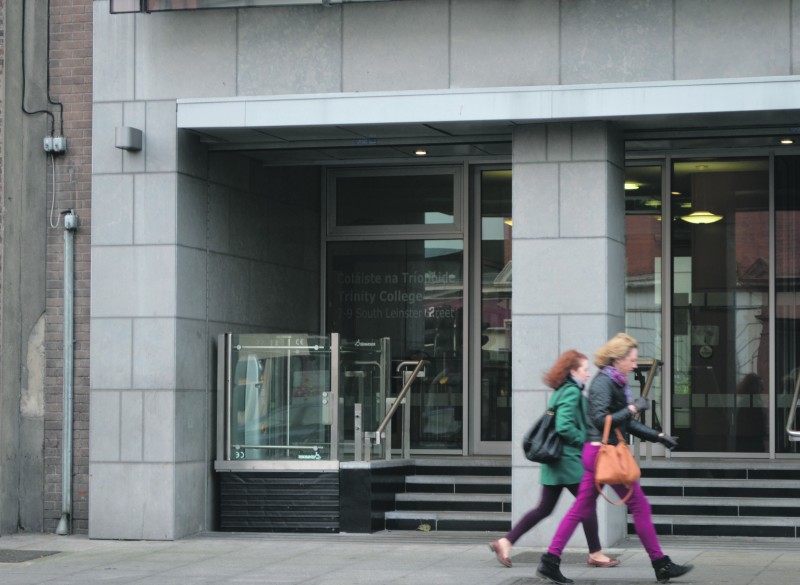Catherine O’Callaghan | Contributing Writer
The percentage of Trinity students seeking help from Student Counselling Services (SCS) has increased from 4.39% in 2005-06 to 7.7% in 2011-12, reflecting an increasing trend amongst students of actively seeking support and taking action regarding their mental health. Deirdre Flynn of the Student Counselling Service feels that these figures reflect a positive trend that relates to the reduced stigma and changing attitudes surrounding mental health issues. Speaking to The University Times, she stated: “Rather than fearing it will compromise their independence, young people are coming to see seeking help as taking control and empowering themselves.”
This increase can, in part, be attributed to the work of the SCS to increase its visibility on campus and its training of various members of the college community in mental health awareness. Mrs Flynn also credits TCD with showing strong support for the services, proving itself to be “committed to students’ well-being and ensuring they do everything possible to ensure students’ success.”
“1 in 3 young people experience a mental health problem…talking about it is the first step towards alleviating the struggles.”
The Niteline service has experienced an increase in total call volume of 97.8% from the October-December period last year, while online listening has increased by 121.18%. In assessing the reasons for this trend, Niteline Coordinator, Hannah Jean Ryan, commended the hard work of a number of Irish mental health charities in helping to reduce social stigma, as well as the courage of well-known and respected figures who have spoken openly about their struggles with mental health.
Students’ Union Welfare Officer, Stephen Garry, has also expressed his views on the matter: “I think the fact that more people are willing to visit the counselling service is testament to the fantastic work taking place aiming to eliminate stigma surrounding mental health. We constantly encourage people to talk more and I’d like to think that this increase signifies students are more willing to do so. It may also indicate that students are realising that certain misconceptions regarding the counselling process are unfounded.
“The counselling service is busy, particularly at this time of year, and I commend them for continuing to work exceptionally well under conditions of increased demand. 1 in 3 young people experience a mental health problem…talking about it is the first step towards alleviating the struggles.” The feedback SCS received last year strongly supports this, with 87% of respondents reporting positive change, and 30% stating they felt that counselling was either an important factor or the most important factor in keeping them enrolled at Trinity.
“Although it is encouraging to learn that more students are willing to speak openly and vulnerably and seek support rather than suffering alone, it is distressing that so many students are struggling at this time of year.”
Unfortunately, evidence also suggests that the students seeking help still represent only a small fraction of those who may need it. A recent MyWorld Survey found that among third-level students in Ireland, 15% experience moderate mental health difficulties, 5% experience severe issues and 9% suffer from very severe problems. At this time of year in particular, more students need extra support, with November being one of the busiest months of the year for SCS. This can be attributed to a number of factors, including forthcoming exams and assignment deadlines, as well as the financial and emotional pressure of Christmas. Speaking about the particularly high volume of calls Niteline has received over the last month, Hannah Jean Ryan said that “although it is encouraging to learn that more students are willing to speak openly and vulnerably and seek support rather than suffering alone, it is distressing that so many students are struggling at this time of year. We can only encourage more students to seek support from the many excellent support services available in College.”
In particular, the SCS wants to encourage more students to participate in the range of group sessions it offers. The SCS has found that these groups are a highly effective form of counselling that allow students facing similar issues to learn from and support each other in a non-threatening environment. A number of these groups are facilitated by external groups who specialise in a specific area, including Aware, BodyWhys, OCD Ireland, and Console – for those bereaved by suicide. There is also a “Mindfulness Drop In” that requires no sign up and runs weekly.
Further information on group sessions is available at www.tcd.ie/Student_Counselling. Niteline also provides support to students on their Freephone number of 1800-793793 or through instant messaging on their website at www.niteline.ie Niteline is completely anonymous and is available between 9pm and 2.30am every night of term.






